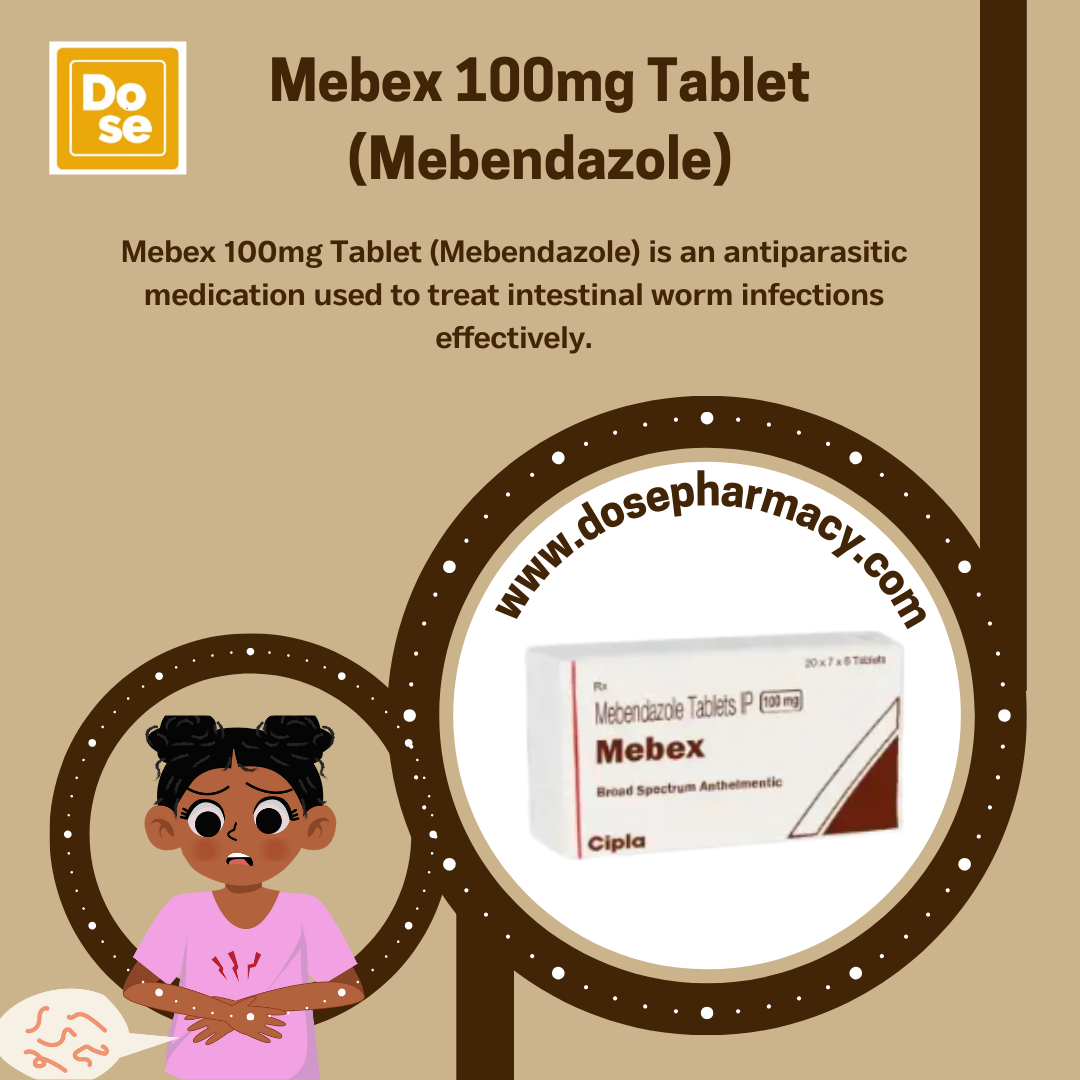
Mebendazole Treatment: How Long Before You See Results?
Mebendazole over the counter is a widely used antiparasitic medication that treats infections caused by intestinal worms such as pinworms, roundworms, hookworms, and whipworms. While it is an effective treatment, many people wonder how long it takes for Mebendazole to start working and when they can expect to see results. In this article, we will discuss the duration of Mebendazole’s action, factors affecting its effectiveness, and what to expect during the treatment process.
How Does Mebendazole Work?
Mebendazole works by inhibiting the ability of parasitic worms to absorb glucose, which is essential for their survival. Without glucose, the worms lose their energy stores, become immobilized, and eventually die. The dead worms are then naturally expelled from the body through bowel movements. The medication specifically targets parasites in the digestive tract without significantly affecting the rest of the body.
How Long Before Mebendazole Starts Working?
The onset of action for Mebendazole varies depending on the type of infection being treated. However, in most cases, the medication begins working within a few hours of ingestion. While you may not immediately notice changes, the drug actively disrupts the worms’ metabolism shortly after administration.
- For Pinworms: Pinworms are among the most common intestinal parasites, especially in children. Mebendazole usually starts killing pinworms within 24 hours of taking the dose. However, it may take a few days for all the worms to be eliminated from the digestive tract. A second dose is often recommended after two weeks to ensure complete eradication of any remaining eggs or newly hatched larvae. You can get best treatment of worm infection from dose pharmacy.
- For Roundworms, Hookworms, and Whipworms: These parasites may take slightly longer to be completely eradicated. Most people notice improvements in symptoms within a few days, but the full course of treatment often lasts a few weeks to ensure complete removal.
Factors Affecting How Quickly Mebendazole Works
Several factors influence how quickly Mebendazole takes effect and how soon you see noticeable improvements:
- Severity of Infection – Heavier worm infestations may require a longer time for full eradication, and symptoms might take longer to disappear.
- Type of Parasite – Different parasites respond at different rates to the medication. Pinworms are typically eliminated faster than some other worms.
- Dosage and Compliance – Taking the correct dosage as prescribed is essential for effectiveness. Incomplete or missed doses can delay results.
- Individual Health Factors – The speed of parasite clearance can vary depending on a person’s immune response, metabolism, and overall digestive health.
- Reinfection Risks – If proper hygiene practices are not followed, reinfection can occur, making it seem like the medication is not working effectively.
What to Expect During Treatment
After taking Mebendazole, patients may experience a few different symptoms as the worms die and leave the body:
- Mild Stomach Discomfort – Some people may experience nausea, mild abdominal pain, or diarrhea as the worms begin to die off and exit the body.
- Visible Worms in Stool – In some cases, dead worms may be noticeable in bowel movements as they are expelled.
- Relief from Symptoms – As the infection clears, symptoms such as itching (in the case of pinworms), abdominal pain, and diarrhea should gradually improve.
When Should You See a Doctor?
While Mebendazole is generally effective, there are situations where medical consultation may be necessary:
- If symptoms persist beyond two weeks after treatment
- If reinfection occurs frequently despite taking precautions
- If you experience severe side effects such as intense abdominal pain, vomiting, or allergic reactions
- If the infection is widespread or accompanied by severe malnutrition
Preventing Reinfection
To ensure complete eradication of parasites and prevent reinfection, follow these hygiene practices:
- Wash hands frequently, especially before meals and after using the restroom.
- Trim fingernails short to prevent eggs from accumulating under them.
- Wash bedding, clothing, and towels in hot water after taking the medication.
- Avoid scratching the anal area, as this can spread eggs.
- Practice good food hygiene by thoroughly washing fruits and vegetables and avoiding contaminated food and water.
Mebendazole is a highly effective treatment for parasitic worm infections, with results typically noticeable within a few days. While it starts working soon after ingestion, complete elimination of worms may take a week or longer, depending on the severity of the infection and individual factors. To ensure successful treatment, it’s essential to follow hygiene measures to prevent reinfection. If symptoms persist or worsen, consult a healthcare provider for further evaluation. By taking the right precautions and completing the treatment as directed, you can achieve full recovery and maintain a healthy, parasite-free system.
FAQs
1. How long does it take for Mebendazole to start working?
Mebendazole begins working within a few hours after ingestion by disrupting the worms’ ability to absorb nutrients. However, noticeable results may take a few days to a week, depending on the type of parasite.
2. How long before symptoms improve after taking Mebendazole?
Symptoms such as itching, stomach discomfort, or diarrhea often improve within 2 to 3 days, but complete parasite elimination may take up to a week or longer.
3. Can I see worms in my stool after taking Mebendazole?
Yes, in some cases, dead worms may be visible in your stool as they exit your body. However, not seeing worms doesn’t mean the treatment isn’t working.
4. Do I need a second dose of Mebendazole?
For pinworms, a second dose is often recommended after two weeks to ensure that newly hatched worms are also eliminated. For other parasites, a single dose is usually sufficient, but follow your doctor’s instructions.
5. What happens if Mebendazole doesn’t work?
If symptoms persist beyond two weeks, you should consult a doctor. Factors like reinfection, improper dosage, or a resistant parasite may require additional treatment.
6. Are there any side effects while waiting for results?
Mebendazole is generally well-tolerated, but mild side effects like nausea, stomach pain, diarrhea, or dizziness can occur as worms die and exit the body.
7. How can I prevent reinfection while waiting for results?
To avoid reinfection:
- Wash hands frequently, especially before eating.
- Keep fingernails short and clean.
- Wash bedding and clothing in hot water.
- Maintain proper food hygiene.
8. Can Mebendazole treat all types of intestinal worms?
Mebendazole is effective against pinworms, roundworms, whipworms, and hookworms but may not work on all parasite types. A doctor can confirm if it’s the right treatment for you.
9. Can I take Mebendazole with food?
Mebendazole can be taken with or without food, but taking it with a meal may improve absorption, especially for treating certain worm infections.
10. When should I see a doctor after taking Mebendazole?
Consult a doctor if:
- Symptoms persist beyond two weeks.
- Severe side effects occur, such as intense abdominal pain or vomiting.
- Reinfection happens frequently.

